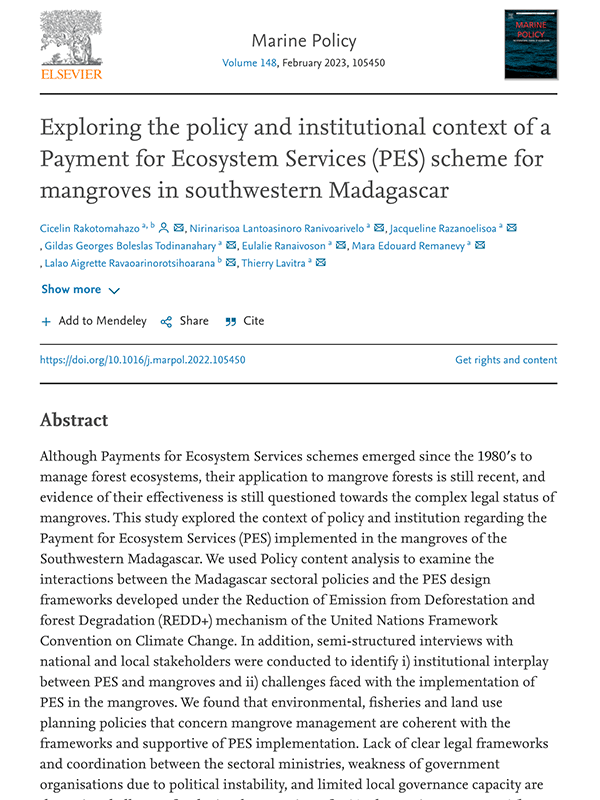Although Payments for Ecosystem Services schemes emerged since the 1980′s to manage forest ecosystems, their application to mangrove forests is still recent, and evidence of their effectiveness is still questioned towards the complex legal status of mangroves. This study explored the context of policy and institution regarding the Payment for Ecosystem Services (PES) implemented in the mangroves of the Southwestern Madagascar. We used Policy content analysis to examine the interactions between the Madagascar sectoral policies and the PES design frameworks developed under the Reduction of Emission from Deforestation and forest Degradation (REDD+) mechanism of the United Nations Framework Convention on Climate Change. In addition, semi-structured interviews with national and local stakeholders were conducted to identify i) institutional interplay between PES and mangroves and ii) challenges faced with the implementation of PES in the mangroves. We found that environmental, fisheries and land use planning policies that concern mangrove management are coherent with the frameworks and supportive of PES implementation. Lack of clear legal frameworks and coordination between the sectoral ministries, weakness of government organisations due to political instability, and limited local governance capacity are the major challenges for the implementation of PES schemes in mangroves. These led to lower motivation to collaborate in mangrove conservation efforts among the members of local communities. We emphasized that the existence of the mangrove PES initiative like in the Baie des Assassins could be a catalyst for Madagascar to develop clear policy, legislation, and institutions to support effective implementation of the PES schemes in mangroves.












